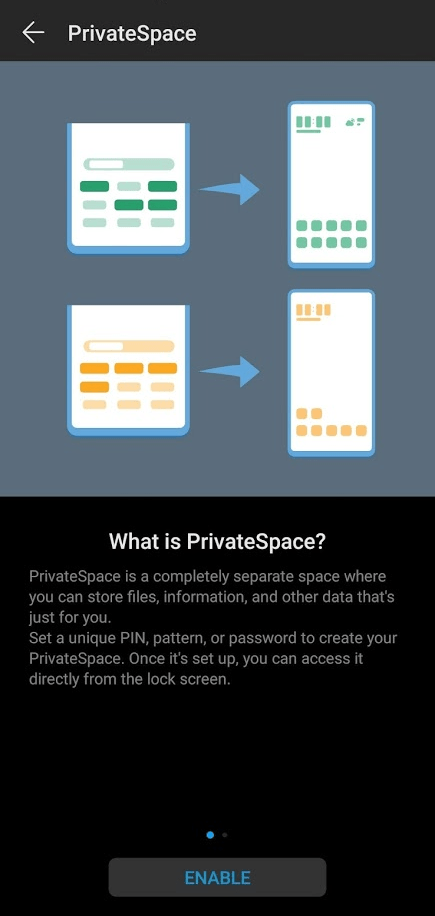In today’s interconnected world, secure and efficient communication is crucial. With a myriad of messaging apps available, choosing the right one can be overwhelming. Two leading contenders, Signal vs iMessage, offer unique features and benefits. But which one is the best fit for your needs? Let’s dive into a detailed comparison and discover the strengths and weaknesses of each messaging app in the context of Signal vs iMessage.
Key Takeaways
- Signal offers superior encryption standards, cross-platform compatibility, and minimal data collection compared to iMessage.
- Signal prioritizes security and privacy, while iMessage offers entertainment options with greater integration with Apple services.
- The choice between the two should be based on user communication needs, priorities, and device preferences.
Signal and iMessage: Overview

Two people using messaging apps on their iOS devices -img
Signal is an open-source messaging application designed for those who prioritize privacy and security in their conversations. Available on Android, iOS, and desktop platforms, the Signal app offers end-to-end encryption for text messaging, video chat, and photo sharing, among other Signal users. With a focus on privacy, Signal’s encryption protocols outshine those of iMessage and other messaging apps.
iMessage, on the other hand, is an Apple-exclusive messaging service that seamlessly integrates with iOS devices. While iMessage also provides end-to-end encryption for Apple device users, its encryption is limited compared to Signal’s. iMessage users enjoy the convenience of sending unlimited messages across Apple devices using their Apple ID.
As both messaging apps provide secure communication, their key differences lie in encryption standards, cross-platform compatibility, and integration with other services. We’ll delve deeper into these aspects next.
Encryption Standards


End-to-end encrypted messaging app on Apple devices – img
Signal boasts superior encryption standards, utilizing AES 256-bit end-to-end encryption for all conversations on mobile devices. In addition to encrypting the messages themselves, Signal ensures that the communication is end-to-end encrypted by also encrypting sender credentials, leaving only the recipient address visible to the Signal server using randomly generated authentication tokens. This level of security makes Signal an ideal choice for those who prioritize privacy in their communications.
iMessage, while offering secure messaging, employs 128-bit AES encryption, which is weaker in comparison to Signal’s encryption standards. Furthermore, iMessage only enables end-to-end encryption for chats between Apple devices that are not logged into iCloud. This limitation highlights the superior security offered by Signal’s encryption protocols.
In terms of encryption standards, Signal emerges as the more secure option, providing robust protection for all messages sent by its users. This security advantage makes it a top choice for privacy-conscious individuals.
Cross-Platform Compatibility


Secure messaging app on Apple and Android devices
Cross-platform compatibility stands as one of Signal’s key strengths, making it accessible on Android, iOS, and desktop platforms. Signal Desktop, an extension that functions similarly to WhatsApp Web, allows users to mirror messages sent and received on their phones. This flexibility makes Signal a versatile choice for users with different devices.
Unlike Signal, iMessage is confined to Apple devices, offering a closed system exclusive to Apple’s products and operating systems. While this exclusivity ensures seamless integration with Apple devices, it restricts iMessage’s usability for those who do not own Apple products or who wish to communicate with non-Apple device users.
Signal’s availability on multiple platforms and its compatibility with various operating systems give it an edge over iMessage in terms of versatility and accessibility.
Messaging Features
Signal and iMessage both provide a variety of messaging features, such as voice messages, media sharing, and read receipts, catering to the needs of modern communication, including internet calling services and SMS messages. However, iMessage goes a step further by integrating with apps and games, providing additional entertainment options for its users.
Despite iMessage’s added features, Signal’s focus on privacy and security does not compromise its messaging capabilities. Users can enjoy the same core messaging features in a more secure environment.
Ultimately, while iMessage boasts extra features like apps and games integration, Signal provides a strong set of messaging features in a secure environment, making it a competitive alternative.
User Interface and Customization
Signal offers a greater range of options for user interface and customization, allowing users to change chat bubble colors and themes, thus catering to individual preferences. This level of customization can be particularly useful for users who utilize the app for both personal and professional communication. If any issues arise, users can contact signal user support for assistance, as signal user support is dedicated to helping users with their concerns.
Contrastingly, iMessage presents a clean, minimalistic interface with fewer customization options. However, it does provide a seamless transition from mobile device to desktop during a conversation, thanks to its ability to synchronize messages across devices.
While iMessage’s clean design may appeal to some users, Signal’s customization options provide a more personalized experience, allowing users to tailor the app to their unique needs and preferences.
Privacy Policies and Data Collection
Signal showcases its commitment to privacy through:
- A robust policy
- Minimal data collection practices
- Advanced security measures
- End-to-end encryption
By employing these measures, Signal ensures that calls and messages are only accessible to the intended recipients. This focus on privacy has garnered app endorsements from privacy advocates such as Edward Snowden.
Despite offering secure messaging, iMessage accumulates more data and stores it in iCloud, potentially exposing users’ information to security risks. Users can configure iMessages to be automatically deleted from their devices after a certain period, but this does not guarantee complete privacy.
For privacy-conscious users, Signal’s minimal data collection and strong privacy policy make it a superior choice over iMessage, which collects more data and stores it in iCloud.
Security Vulnerabilities and Updates
Signal has a history of fewer security vulnerabilities and maintains regular updates, ensuring the app remains secure and up-to-date. Reports of zero-day vulnerabilities in Signal’s software have been investigated, but no evidence supporting these claims has been found.
iMessage, conversely, has experienced some security issues and relies on Apple’s update schedule for improvements and fixes. This reliance on Apple’s updates can potentially leave users vulnerable to undetected security issues, especially when compared to Android devices that may receive updates from various manufacturers.
In terms of security vulnerabilities and updates, Signal’s proactive approach and regular updates make it a safer choice for Android users seeking a secure messaging app.
Integration with Other Services


Comparison image of Signal and iMessage logos, highlighting the differences between Signal vs iMessage services integration.
iMessage seamlessly blends with other Apple services, providing a seamless user experience for those heavily invested in the Apple ecosystem. This integration allows iMessage users to conveniently access additional features and services within the Apple environment.
However, Signal’s focus on privacy and security limits its integration with third-party services. While this may be seen as a disadvantage to some users, it reinforces Signal’s commitment to user privacy and security.
In summary, while iMessage offers greater integration with other Apple services, Signal’s focus on privacy and security makes it a strong contender for those who prioritize these aspects in their messaging app.
Notable Endorsements and Recommendations
Privacy advocates have notably endorsed Signal like Edward Snowden, who recommends Signal for its strong encryption and privacy features. This endorsement highlights Signal’s commitment to user privacy and security, making it a popular choice among privacy-conscious users.
Conversely, iMessage enjoys popularity among Apple users for its seamless integration with Apple devices and additional features. While it may not have the same level of privacy endorsements as Signal, iMessage remains a well-regarded messaging app within the Apple community.
Both messaging apps have their respective endorsements and recommendations, but Signal’s focus on privacy and security sets it apart as a top choice for those who prioritize these factors.
Pros and Cons of Using Signal vs iMessage
To conclude, the benefits of Signal encompass strong encryption, cross-platform compatibility, and privacy features, while its cons include limited device sign-in and occasional message delays. On the other hand, the advantages of iMessage incorporate seamless integration with Apple devices and additional features, while its cons include limited cross-platform compatibility and weaker encryption.
Each messaging app caters to different user needs and priorities. Signal is ideal for users who prioritize privacy and security in their communications, while iMessage suits those who value seamless integration with Apple devices and additional features.
Ultimately, the choice between Signal and iMessage depends on your specific communication needs, priorities, and device preferences. Make an informed decision by considering the pros and cons of each messaging app and how they align with your requirements.
Summary
In summary, both Signal and iMessage offer unique features and benefits, catering to different user needs and priorities. Signal’s strong encryption, cross-platform compatibility, and privacy features make it a top choice for privacy-conscious individuals, while iMessage’s seamless integration with Apple devices and additional features appeal to those heavily invested in the Apple ecosystem.
By understanding the strengths and weaknesses of each messaging app, you can make an informed decision on which app best suits your communication needs and preferences, ensuring secure and efficient communication in today’s interconnected world.
Frequently Asked Questions
Why is Signal safer than Imessage?
Signal’s security and end-to-end encryption make it significantly safer than iMessage, as users’ calls and messages are never shared with anyone but the intended recipients.
Why would someone use Signal app?
Signal is an ideal messaging app for those looking for privacy and wanting to avoid SMS fees. It offers free, end-to-end encrypted text, image, audio, and video messaging, as well as encrypted phone calls between Signal users, all using your phone’s data connection.
Which messaging app offers better encryption standards?
Signal provides more secure encryption standards with its AES 256-bit end-to-end encryption, as opposed to iMessage’s 128-bit AES encryption.
Is Signal available on desktop platforms?
Yes, Signal is available on desktop platforms in the form of an application for multiple devices.
Can I customize the appearance of Signal and iMessage?
Yes, you can customize the appearance of both Signal and iMessage. Signal offers more options with its colour themes and chat bubbles, while iMessage is more limited with its minimalistic interface.



